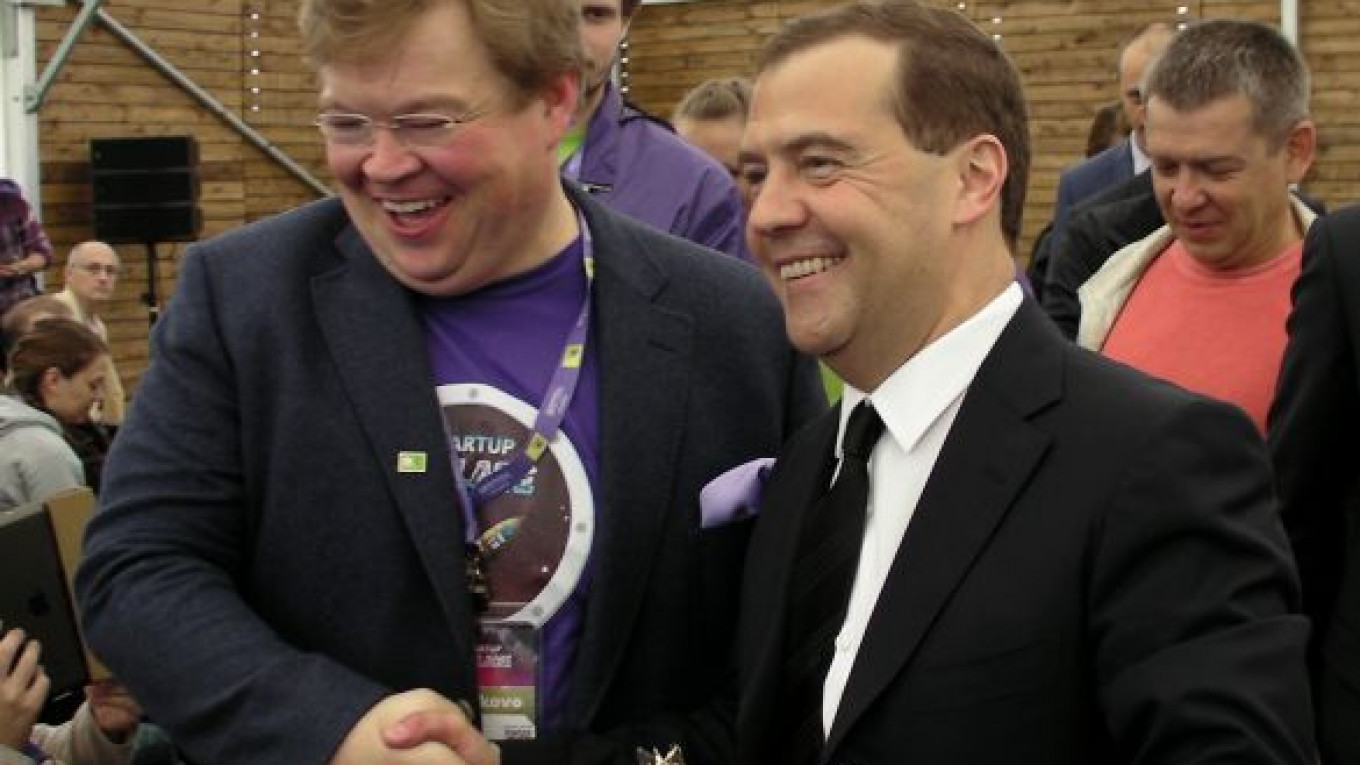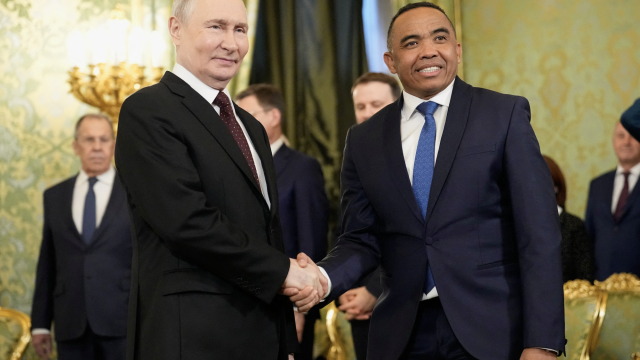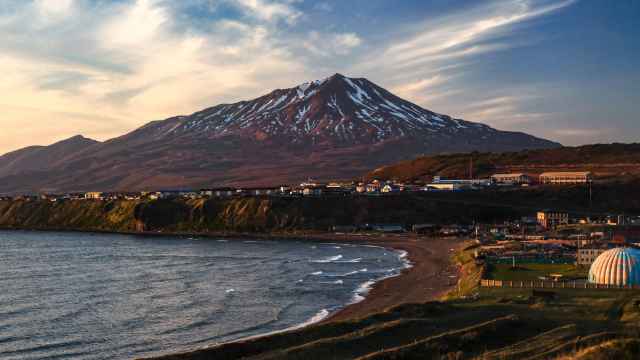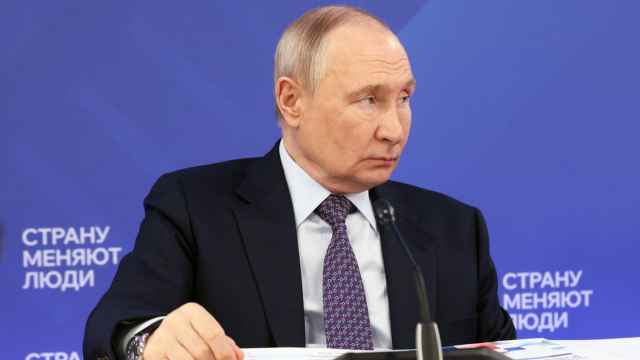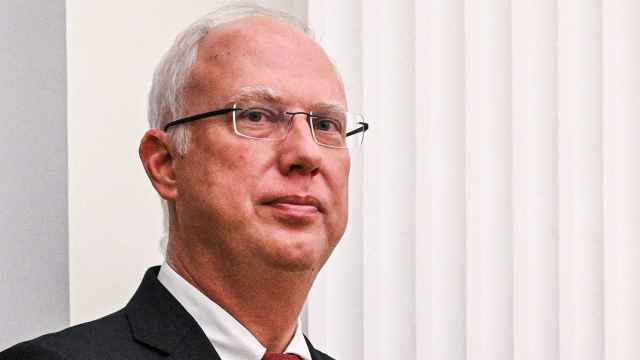Prime Minister Dmitry Medvedev visited the Startup Village conference at Skolkovo on Tuesday, reaffirmed his commitment to the Skolkovo innovation hub following a recent embezzlement scandal surrounding the project he conceived during his presidency, and learned a bit of geology.
"I never knew that Kaliningrad had commercial geo-thermal sources," Medvedev said at a session where startups presented projects on renewable energy. "I've been to Kamchatka, but not Kaliningrad. I'll need to find that place," he added.
"At the moment, the use of renewable energy sources and green energy is far from what we would like to see. We only use an inconsequential part of our potential," the prime minister said. It has a bright future and the government will be reviewing its policies toward their broader use, he added.
Duvieusart said bureaucracy made investment in Russia difficult but added that he was not aware of any political instability.
The international conference organized by the Skolkovo Foundation brought together more than 2,000 startup companies, 320 investors and 260 partners to discuss problems and opportunities in Russia today.
While business and economic issues were reviewed in great detail, speakers were quick to react to any questions regarding political climate in the country.
"I just don't know what political instability you have in Russia," Jean-Pascal Duvieusart, a Moscow-based investor from PPF Group told the audience. "It's absolutely stable. It's extremely simple. It's very straightforward."
He said that if there were issues, they would be "more around complexity of filing taxes, administration and bureaucracy, which makes investment in Russia more complex than it should. But political instability is not an issue."
Pekka Viljakainen, the conference leader, said he saw the role of Skolkovo as helping investors to navigate these issues. "In Russia, it's still a bit confusing for investors," he said. There is corruption and bureaucracy in the country, but Skolkovo helps entrepreneurs to fast track decisions that keep their businesses back, he added.
Anatoly Karachinsky, IBS Group's president, pointed out three other obstacles that could prevent an already successful private company from becoming a Group A enterprise — a global business that provides services to other businesses.
First, he said, the country needed business conditions fair for all. Companies with better technology and better management need to be able to convert their advantage into profit. In Russia, the smartest do not always win.
Second, there needs to be a desire to cultivate business champions. "Private champions and not state champions," Karachinsky clarified. "Unfortunately, I have a feeling," he said, "that as soon as a private champion appears, it irritates [for the state]." The government normally supports state companies, the one that it has interest in, he added.
Third, large companies have to be international. This requires experience, because different countries have different problems. Employing foreigners may also be a problem because of the cultural differences in a workplace.
The federal government can't be blamed for everything, Viljakainen said.
"Typically, it's not the federal but regional government that helps investors. Nobody form Moscow can tell Vladivostok how to do business there. Moscow can change federal laws, do advertising, but the regional government needs to take the [leading] role," he added.
Foreign companies, attending the conference, said their experience in Russia has been a good one.
"Russia is a huge market, it's the biggest Internet market in Europe," Angry Birds marketing manager Peter Vesterbacka said. "There is a lot of talent, and I think now is a very good time to invest. We've been very successful with a lot of our products. Not only games, but also soft drinks and children's books," he added.
Not being in Russia is no longer an option, Parallels' CEO Birger Steen said. "It is a sizable chunk of the world's market. Large corporate sales and success in retail are something you can do really well here, but it takes time," he added.
Contact the author at [email protected]
A Message from The Moscow Times:
Dear readers,
We are facing unprecedented challenges. Russia's Prosecutor General's Office has designated The Moscow Times as an "undesirable" organization, criminalizing our work and putting our staff at risk of prosecution. This follows our earlier unjust labeling as a "foreign agent."
These actions are direct attempts to silence independent journalism in Russia. The authorities claim our work "discredits the decisions of the Russian leadership." We see things differently: we strive to provide accurate, unbiased reporting on Russia.
We, the journalists of The Moscow Times, refuse to be silenced. But to continue our work, we need your help.
Your support, no matter how small, makes a world of difference. If you can, please support us monthly starting from just $2. It's quick to set up, and every contribution makes a significant impact.
By supporting The Moscow Times, you're defending open, independent journalism in the face of repression. Thank you for standing with us.
Remind me later.


